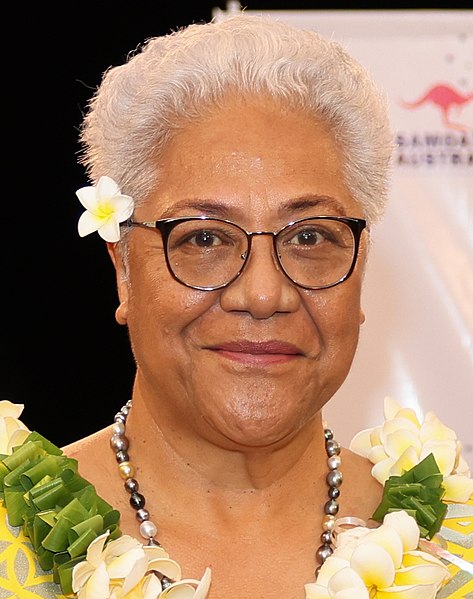Politics of Samoa takes place in a framework of a parliamentary representative democratic state whereby the Prime Minister of Samoa is the head of government. Existing alongside the country's Western-styled political system is the fa'amatai chiefly system of socio-political governance and organisation, central to understanding Samoa's political system.
Government Building in the capital Apia housing administrative ministerial offices. On the roof is a modern version of a traditional oval Samoan fale.
Colonel Robert Ward Tate, NZ Resident Commissioner of Western Samoa and retinue at Mulinu'u, c. 1919–1923
The prime minister of the Independent State of Samoa is the head of government of Samoa. The prime minister is a member of the Legislative Assembly, and is appointed by the O le Ao o le Malo for a five-year term. Since independence in 1962, a total of seven individuals have served as prime minister. The incumbent was disputed due to the 2021 constitutional crisis, when Tuila'epa Sa'ilele Malielegaoi refused to accept the results of the 2021 general election. On 23 July 2021, the Samoan Court of Appeal ruled that the Faʻatuatua i le Atua Samoa ua Tasi (FAST) party had been in government since 24 May. Tuila'epa then conceded defeat, resulting in FAST party leader Fiamē Naomi Mataʻafa becoming prime minister.
Prime Minister of Samoa
Image: Albert Barnes Steinberger
Image: Fiame Mata'afa Faumuina Mulinu'u II (cropped)
Image: Tupua Tamasese Lealofi IV






